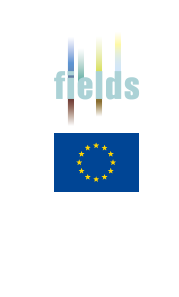Fields
Addressing the current and Future skill needs for sustainability, digitalization, and the bio-Economy in agriculture: European skills agenda and Strategy
CONTACT
Christophe Cotillon (Actia) et Gemma Cornuau
Tel. : 33 (0)6 14 08 91 41 33 (0)6 18 69 52 13
COORDINATION
University of Torino (Italy)
Partners
30 full partners representing 12 different European Countries: Austria (Iseki, AP, LVA, FJ-BLT), Belgium (FDE, LLL-P, Plant ETP, Efvet, Cepi), Finland (PA), France (Actia, AC3A, Ania), Germany (UHOH), Greece (Cert, Sevt, EFB, Gaia), Ireland (ICOS), Italy (University of Torino, Confagricoltura, Infor), Portugal (Confagri PT), Slovenia (GZS), Spain (Scoop, UCLM, Fiab, Fenacore), The Netherlands (Wur, Aeres).
BEGINNING OF PROJECT
January 2020
DURATION
48 months
Reference
Objectives
European agriculture is facing many challenges, the Food 2030 policy highlight the vulnerability of agricultural production due to the globalisation of the markets, increasing competition, the prices volatility and the economic uncertainty along with the low incremental crop productivity. Those vulnerabilities are stressed by an increasing demand for food and feed while environmental concerns increase and climatic changes generate more uncertainties. Moving from business as usual agriculture to sustainable farming is a complex process which requires a system approach, including reshaping the role of the farmer. The purpose of the project is to answer those challenges through the skills prism.
The identification of existing and emerging skills needs in bio-economy, sustainability and for the use of digital technology, is of paramount importance in order to develop a strategic approach to keep the European agricultural sector competitive and sustainable in the long term.
The multi-stakeholder approach in the FIELDS project, with 30 partners from 12 countries will allow tackling the complexity of the issues EU agriculture faces today.
The FIELDS approach, starting from the current and future trends and skills needed, will lead to a sustainable European strategy to address these skill gaps. Since agriculture issues and opportunities differ a lot from country to country, the EU strategy will be customised to have a country strategy for 7 countries.
The general strategy will be defined based on a deep analysis of the needs, but it will also be put into practice directly inside the project, through the creation of methodologies, curricula and training content implemented through pilot training at the partner's premises, in country languages, to engage the farmers and foresters. To have a larger impact, national roadmaps containing concrete steps and actions will be created to help all stakeholders put into practice the elaborated strategy at EU level.
Actions




